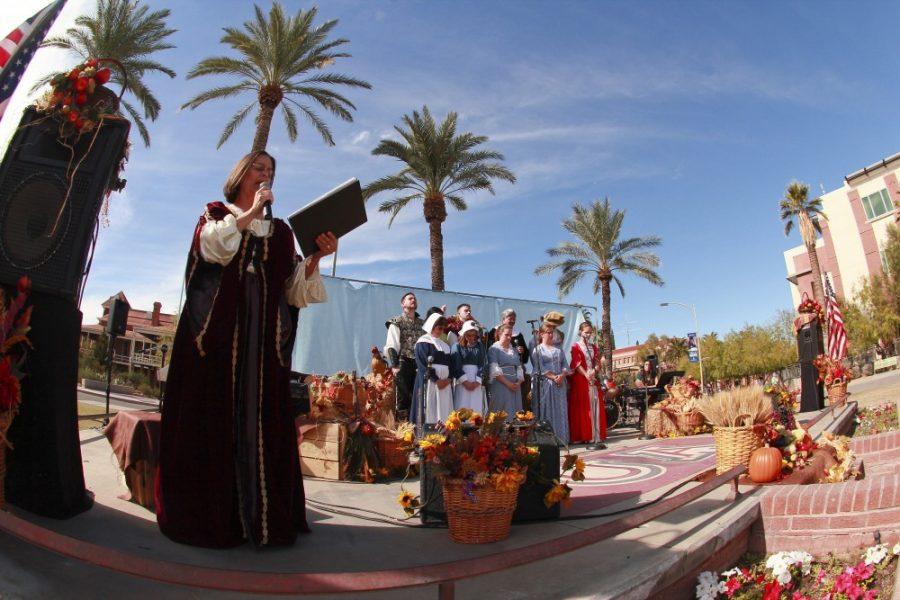People stopped on the UA Mall Tuesday afternoon to listen, and to take photographs and video of the UA Gatekeepers club Thanksgiving choir program. But some said they were shocked that the UA would allow such an event to take place.
The Christian club sang and told the story of the pilgrims coming to America, forging relationships with the Native Americans and celebrating a fruitful harvest.
“Historically this is one of the few times where the whites and the Indians had a bonding experience,” said John Winchester, UA alumnus, historian and former member of the club for 14 years.
But some students weren’t as amused with the presentation as others. Nazune Menka, a graduate student studying soil, water and environmental science, said she first noticed the choir after leaving
class. She said she was shocked by the mockery of a white man assuming the role of a Native American for the sake of the performance.
“At least consult the Native American Student Affairs on campus,” Menka said. “I just wish what they were doing was culturally competent.”
The club, which also holds a Christmas performance, gets the most negative feedback for the Thanksgiving performance, Winchester added.
The intent of the performance is to honor the bond between pilgrims and Indians, according to Winchester, and to remind people to be thankful for what they have and teach them about why Thanksgiving is celebrated.
“We take it a step further also and believe we should be thankful to God for the things that he’s done in our lives, and the mercy he’s shown us,” Winchester said.
The club projects religion in its performance, something some people don’t like, he said.
Koiya Tuttle, a graduate student studying soil, water and environmental science, said he was surprised that the UA allowed the performance because of how inclusive the school usually is.
“The University of Arizona is a place that many of us [Native Americans] come to get away from things like this,” Tuttle said.
Winchester said that the performance is truthful in depicting the historical event that is celebrated today as Thanksgiving. While some are offended by the performance, others appreciate the festivities, decorations and education it provides.
“We’re not racist, we’ve been called that and it’s just not true,” Winchester said. “We’re trying to do the best we can to honor the heritage and the story. It’s the best we can do.”
An older version of this article incorrectly stated the date of the event. The article has been corrected.









